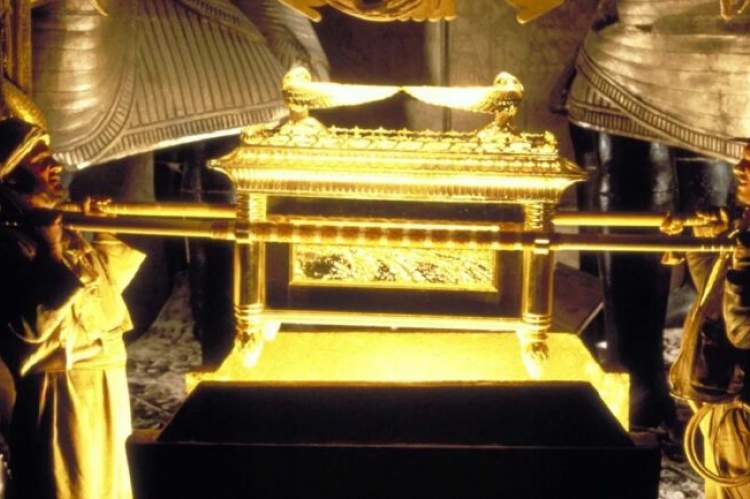There is a feeling about Ramadan and faith that i am trying to explain to outsiders
This article is not just for Muslims. The outside world sometimes does not understand our spirit why it binds us so strongly to the fasting. How can it be that many people refuse injections, infusions, medications during this period, even though they would have the opportunity to supplement the lost days later.
What is this? Fanatism? Maybe we don't understand the call of modern times? Why we not let the uncomfortable legacy of the past to be forgotten? Why are we forcing Ramadan so much! It's just a burden! Well, that’s how those think who lack a particular sort of feeling. While this feeling that can recover the lost treatments and infusions a thousand times more. Relying on God for Muslims (provided they are conscious believers) means more than religiosity in the European sense. It is not only a belief, but also a struggle. With whom?
I deduct it now:
Let’s go back to the Antique era and examine a millennium between Alexander the Great (i.e. 356- 323) and the Byzantine emperor Heraclius (610-641). During this period, Western, i.e. Greek and Roman thinking took over a lot from the culture of the peoples in the East. That was true backwards, too. Hellenism was practically based on multiculturalism, which meant that the text recorded was Greek in all cases, but the content was not. In this thousand years, cultural interaction had an essential importance.
From here, I ask that my dear Christian readers not be offended. I put this assessment here according to a Muslim point of view. It is better if they also know what is in our heads and not always we need to hear what is in their heads about Islam.
So, there is a consensus among Muslims that Christianity has been able to gain ground among barbarian peoples. From the 8th century onwards, Muslims regarded Christians as a dark, brutish, barbaric mass from whom there was nothing to learn, so cultural influence from that direction was out of the question. This is also evidenced by the note of Emir of Usama Ibn Munkidz (1095-1188), who described Christians as follows: “Beasts ( بهائم baha’im), with whom we can only make ourselves understood with fight.”
This was the general opinion all the way till Napoleon embarked the land of Egypt (1798). Let us not forget that by then Europe has reached the age of enlightenment. But that has not changed the perception of Muslims regarding Europe's "Christian" character either. Why not? Because Napoleon did not bring the fertilizing effect of a European culture. From an Islamic point of view, this cannot be considered as a culture. It was a scientific-technical change which was not supported by spiritual value. So, a soulless scientific-technical supremacy set foot, supported by a sizable army.
Napoleon himself was also surprised by the ideological and cultural situation he experienced in Egypt. From his age, we are not talking about the adoption of ideological and cultural values, but about the degradation of Islam and making to forget its teachings. According to the judgment of Muslims, the “secularization” and “modernization” imported here were aiming the destruction of their religious values. One means of that was the establishment of the science of Orientalism. One of the means in the fight against European supremacy was Islam and adherence to Islamic values, including its spirit. Thinkers such as Jamal Aldin Alafghani (1853-1897), Mohammed Abduh (1849- 1905), Mahmoud Shaltout (1893-1963) and many others stood at the helm of this struggle.
The general opinion in Muslim circles is that the “Christian” values represented by Europe have won only in a scientific-technical and military sense, not in a spiritual sense. On a spiritual level, there is still an underground struggle going on today and part of it is Ramadan. If we understand that situation, let us read this Hadith from this aspect and can interpret what these lines may mean to us Muslims (I quote it in several variations for the sake of accuracy):

Abu Hurairah (May Allah be pleased with him) reported:
The Messenger of Allah (peace be upon him) said, "Allah the Exalted and Majestic said: 'Every act of the son of Adam is for him, except As-Siyam (the fasting) which is (exclusively) for Me, and I will reward him for it.' Fasting is a shield. When anyone of you is observing fast, he should neither indulge in obscene language nor should he raise his voice; and if anyone reviles him or tries to quarrel with him, he should say: 'I am fasting.' By Him in Whose Hand the soul of Muhammad is, the breath of one observing Saum is sweeter to Allah than the fragrance of musk. The one who fasts, experiences two joys: he feels pleasure when he breaks the fast. He is joyful by virtue of his fast when he meets his Rubb."
Al-Bukhari and Muslim.
In a narration by Al-Bukhari, the Messenger of Allah (peace be upon him) said, "Allah says: '(The person observing Saum) has abstained from food and drink, and sexual pleasures for My sake; fasting is for Me, and I will bestow its reward. Every good deed has ten times its reward'."
In a narration by Muslim, the Messenger of Allah (peace be upon him) said, "The reward of every (good) deed of a person is multiplied from ten to seven hundred times. Allah (SWT) says: 'The reward of observing Saum is different from the reward of other good deeds; Saum is for Me, and I Alone will give its reward. The person observing Saum abstains from food and drink only for My sake.' The fasting person has two joyous occasions, one at the time of breaking his fast, and the other at the time of meeting his Rubb. Surely, the breath of one observing Saum is better smelling to Allah than the fragrance of musk."




















